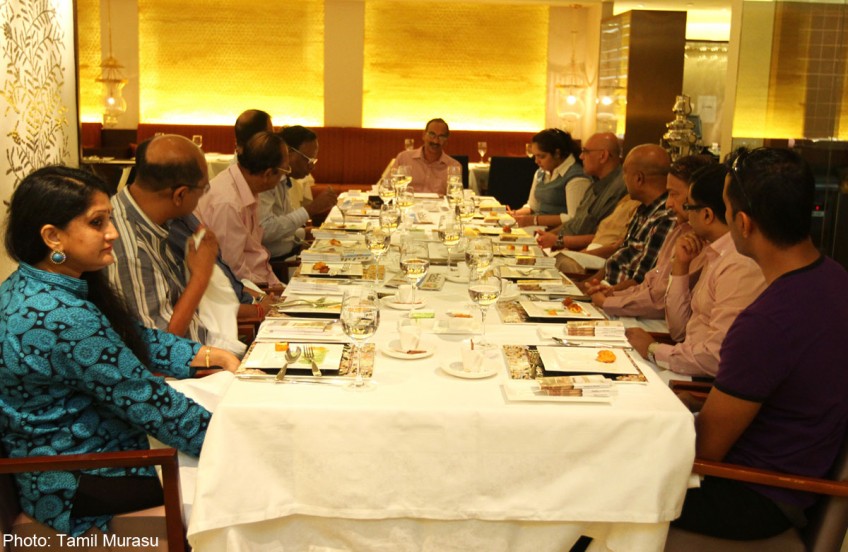Sharing language concerns: Malayalees discuss issues affecting their community

SINGAPORE - Malayalees make up the second-largest Indian ethnic group in Singapore, after the Tamils. They have made significant contributions to Singapore's political and cultural history.
The Singapore Malayalee Association (SMA) is one of the oldest Indian associations here, having been set up 97 years ago.
Yet Malayalam is not one of the Non-Tamil Indian Languages (NTIL) in Singapore and Malayalam students often take either Tamil or Hindi as a second language. As a result, there is fear that subsequent generations will not be in touch with their mother tongue.
This was just one of the concerns raised during tabla!'s tea session with the Malayalee community at the Tandoor restaurant at Holiday Inn, Orchard City Centre, on Nov 22. The session is part of the paper's ongoing efforts to reach out to Indian communities in Singapore and serve their needs better.
In attendance were Dr V.P. Nair (Global Organisation of People of Indian Origin), Mr P.K. Koshy (Singapore Malayalee Association), Mr Jayadev Unnithan (Malayalam Language Education Society), Mr Ajayan Ramachandran (Woodlands Grassroots Organisation), Mr Rajiv Nair and Dr K. Nanda Kumar (World Malayalee Council), Mrs Santha Bhaskar and her son Mr Ananda Mohan Bhaskar (Bhaskar's Arts Academy), Dr T. Jayapregasham (Naval Base Kerala Library) and Dr Chitra Krishnakumar (Soorya Singapore).
Welcoming the participants, tabla!'s editor Patrick Jonas explained the rationale behind the initiative, adding that tabla! is a platform for the Indian community and that this was an opportunity for the newspaper to understand the community better.
Mr Unnithan, who heads the Malayalam Language Education Society, explained that in Singapore, there is limited opportunity for students to learn Malayalam. He shared his efforts at organising Malayalam classes for students from pre-primary to Primary 3 and 4, explaining that they took existing syllabuses for NTIL languages from the Board for the Teaching and Testing of South Asian Languages and translated them into Malayalam.
Referring to Mr Unnithan's efforts, Dr Kumar praised the "promising future of the Malayalam language in Singapore".
The global vice-chairman of the World Malayalee Council also suggested that these materials could be exported overseas.
The participants also shared their efforts at promoting local talent. However, they felt that integration between expatriate and local Malayalees needs work.
"It is hard to get locals to be actively involved in our events, while the new arrivals are always the most excited," said Mr Jayapregasham.
Dr Kumar, along with several others, thanked tabla! for its efforts at publicising the Malayalee community's events.
"We all are part of a bigger and diverse Indian community in Singapore. tabla! can play a big part in pulling together the various Indian groups and mould us to grow as a homogeneous community," said Mr Jayapregasham.

Get a copy of tabla! for more stories.